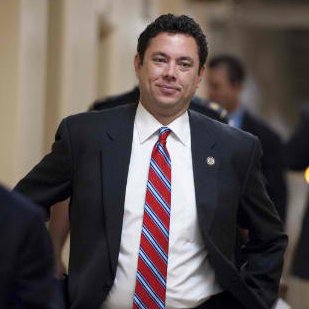PPA Calls New US Internet Gambling Prohibition Bill "Crony Capitalism"

 On Wednesday, Congressman Jason Chaffetz (R-UT, pictured) reintroduced legislation to ban internet gambling in the United States, presumably at the behest of Las Vegas Sands CEO Sheldon Adelson. A press conference was held at 11:00am Eastern Time for Chaffetz to trumpet his latest attack on our industry.
On Wednesday, Congressman Jason Chaffetz (R-UT, pictured) reintroduced legislation to ban internet gambling in the United States, presumably at the behest of Las Vegas Sands CEO Sheldon Adelson. A press conference was held at 11:00am Eastern Time for Chaffetz to trumpet his latest attack on our industry.
Reacting to the press conference was the Poker Players Alliance, whose Executive Director, John Pappas, commented, “Every Congress to consider internet gaming legislation has preserved the right of states to protect its citizens through a system that is accountable to regulators and the government. Attempting to re-write history through a piece of legislation that prohibits states from enacting these safeguards represents the worst kind of crony capitalism that favors a mega political campaign donor over what’s in the best interest of the states and their consumers.”
The “mega political campaign donor” is Adelson, whose casinos include the Venetian and Palazzo in Las Vegas and Sands Bethlehem in Pennsylvania. Adelson’s team already hijacked a confirmation hearing for Attorney General nominee Loretta Lynchin order to bring up the evils of internet gambling. Adelson (pictured below) also met with House Judiciary Committee members to jump-start his anti-internet gambling crusade.
You’ve probably heard the standard critiques of internet gambling: underage gambling, problem gambling, and terrorism. According to Pappas, those arguments are dubious at best: “To date, there has not been a single documented case of a minor playing on any of these state-regulated sites… Claims that regulated internet gaming is a conduit for money laundering and terrorist financing are completely false and have no backing in the real world. At best, these claims are fear-mongering; at worst, they are outright deception.”
“As the states are proving they can effectively regulate internet poker and contribute to the economy by doing so, one might question the motives behind stopping such success,” Pappas closed by saying. “Americans are going to continue playing poker online, and with absolutely no consumer protections under a prohibition. If Congress is serious about protecting consumers, prohibiting states from implementing a sound regulatory framework is certainly not the answer.”
According to the PPA, Chaffetz’s bill would eliminate the regulated gaming markets in New Jersey, Nevada, and Delaware.
Stay tuned to PocketFives for the latest poker legislation news.
Want the latest poker headlines and interviews? Follow PocketFives on Twitterand Like PocketFives on Facebook. You can also subscribe to our RSS feed.

 Regulated i-gaming exists in New Jersey, Nevada, and Delaware. Although revenues have fallen short of expectations, these three states boast a regulated, safe environment for players to compete.
Regulated i-gaming exists in New Jersey, Nevada, and Delaware. Although revenues have fallen short of expectations, these three states boast a regulated, safe environment for players to compete.


